tutorial, commentary, study resources, and web links
The Tree of Knowledge first appeared in the volume of short stories published under the collective title The Soft Side in 1900 – a remarkably productive year for Henry James. It was a period which saw the publication of The Great Good Place, Maud-Evelyn, Miss Gunton of Poughkeepsie, The Abasement of the Northmores, The Third Person, The Tone of Time, and the story which is widely regarded as his finest – The Beast in the Jungle. He wrote all of these (and more) in addition to working on his next novel, The Sacred Fount (1901).
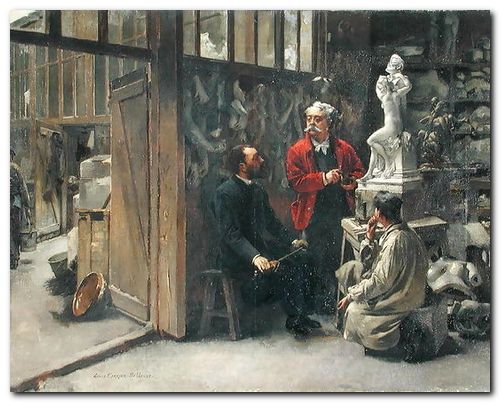
The artist’s studio
The Tree of Knowledge – critical commentary
This is one of many stories James wrote about artists and their varying degrees of success. Morgan Mallow is a hopelessly untalented sculptor who is blind to his own lack of skill but has apparently persuaded the people around him otherwise. The main point of the story is first his son’s realisation that his father is a fraud, and then the revelation that his devoted and supportive wife has been aware of his artistic failure all along.
The most noteworthy thing about the story is the lofty and droll manner in which James conveys Mallow’s lack of talent as a sculptor.
The room they sat in was adorned with sundry specimens of the Master’s genius…They were indeed of dimensions not customary in the products of the chisel and had the singularity that, if the objects and features intended to be small looked too large, the objects and features intended to be large looked too small…The creations [ …] stood about on pedestals and brackets, on tables and shelves, a little staring white population, heroic, idyllic, allegoric, mythic, symbolic, in which “scale” had so strayed and lost itself that the public square and the chimney-piece seemed to have changed places, the monumental being all diminutive and the diminutive all monumental
The Tree of Knowledge – study resources
![]() The Complete Works of Henry James – Kindle edition – Amazon UK
The Complete Works of Henry James – Kindle edition – Amazon UK
![]() The Complete Works of Henry James – Kindle edition – Amazon US
The Complete Works of Henry James – Kindle edition – Amazon US
![]() Complete Stories 1898—1910 – Library of America – Amazon UK
Complete Stories 1898—1910 – Library of America – Amazon UK
![]() Complete Stories 1898—1910 – Library of America – Amazon US
Complete Stories 1898—1910 – Library of America – Amazon US
![]() The Tree of Knowledge – Digireads reprint edition – Amazon UK
The Tree of Knowledge – Digireads reprint edition – Amazon UK
![]() The Tree of Knowledge – eBook formats at Gutenberg Consortia
The Tree of Knowledge – eBook formats at Gutenberg Consortia
![]() The Tree of Knowledge – read the story on line
The Tree of Knowledge – read the story on line
![]() The Cambridge Companion to Henry James – Amazon UK
The Cambridge Companion to Henry James – Amazon UK
![]() The Prefaces of Henry James – Introductions to his tales and novels
The Prefaces of Henry James – Introductions to his tales and novels
![]() Henry James at Wikipedia – biographical notes, links
Henry James at Wikipedia – biographical notes, links
![]() Henry James at Mantex – tutorials, biography, study resources
Henry James at Mantex – tutorials, biography, study resources
The Tree of Knowledge – plot summary
Part I. Peter Brench is a bachelor and a writer of sorts who is very friendly with Morgan Mallow, a hopelessly untalented sculptor who gives himself great airs and lives on his wife’s money. Brench has been a long time admirer of Mrs Mallow and is godfather to her son Lance. Brench keeps to himself his belief that Mallow lacks talent, whilst Mrs Mallow helps to support the idea that her husband is an unrecognised genius.
Part II. When Lance comes of age he announces that he is giving up studying at Cambridge in favour of going to Paris to become an artist of some kind. Brench tries to dissuade him – without success. Mallow meanwhile recieves a commission from a wealthy Canadian to carve a tombstone.
Part III. Lance eventually returns from Paris, revealing to Peter Brench that he now realises the truth about his father’s lack of talent. Brench shares his own opinions, but asks him to conceal the truth for the sake of his mother’s feelings.
Part IV. Lance returns to Paris, but his father begins to put pressure on him to produce some tangible evidence of success. When Lance feels he can longer remain silent regarding his father’s fraudulence, he reveals to Brench that his mother has confessed to him that she too all along has secretly known about her husband’s lack of talent.
Principal characters
| Peter Brench | bachelor (50) and ‘writer’ |
| Morgan Mallow | his friend, a sculptor |
| Mrs Mallow | Mallow’s wife |
| Lance (Lancelot) | their son |
| Egidio | their Italian footman |
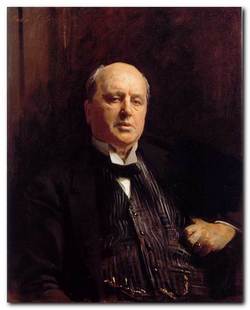
Henry James – portrait by John Singer Sargeant
Further reading
Biographical
![]() Theodora Bosanquet, Henry James at Work, University of Michigan Press, 2007.
Theodora Bosanquet, Henry James at Work, University of Michigan Press, 2007.
![]() F.W. Dupee, Henry James: Autobiography, Princeton University Press, 1983.
F.W. Dupee, Henry James: Autobiography, Princeton University Press, 1983.
![]() Leon Edel, Henry James: A Life, HarperCollins, 1985.
Leon Edel, Henry James: A Life, HarperCollins, 1985.
![]() Philip Horne (ed), Henry James: A Life in Letters, Viking/Allen Lane, 1999.
Philip Horne (ed), Henry James: A Life in Letters, Viking/Allen Lane, 1999.
![]() Henry James, The Letters of Henry James, Adamant Media Corporation, 2001.
Henry James, The Letters of Henry James, Adamant Media Corporation, 2001.
![]() Fred Kaplan, Henry James: The Imagination of Genius, Johns Hopkins University Press, 1999
Fred Kaplan, Henry James: The Imagination of Genius, Johns Hopkins University Press, 1999
![]() F.O. Matthieson (ed), The Notebooks of Henry James, Oxford University Press, 1988.
F.O. Matthieson (ed), The Notebooks of Henry James, Oxford University Press, 1988.
Critical commentary
![]() Elizabeth Allen, A Woman’s Place in the Novels of Henry James London: Macmillan Press, 1983.
Elizabeth Allen, A Woman’s Place in the Novels of Henry James London: Macmillan Press, 1983.
![]() Ian F.A. Bell, Henry James and the Past, London: Palgrave Macmillan, 1993.
Ian F.A. Bell, Henry James and the Past, London: Palgrave Macmillan, 1993.
![]() Millicent Bell, Meaning in Henry James, Cambridge (MA): Harvard University Press, 1993.
Millicent Bell, Meaning in Henry James, Cambridge (MA): Harvard University Press, 1993.
![]() Harold Bloom (ed), Modern Critical Views: Henry James, Chelsea House Publishers, 1991.
Harold Bloom (ed), Modern Critical Views: Henry James, Chelsea House Publishers, 1991.
![]() Kirstin Boudreau, Henry James’s Narrative Technique, Macmillan, 2010.
Kirstin Boudreau, Henry James’s Narrative Technique, Macmillan, 2010.
![]() Victoria Coulson, Henry James, Women and Realism, Cambridge University Press, 2009.
Victoria Coulson, Henry James, Women and Realism, Cambridge University Press, 2009.
![]() Daniel Mark Fogel, A Companion to Henry James Studies, Greenwood Press, 1993.
Daniel Mark Fogel, A Companion to Henry James Studies, Greenwood Press, 1993.
![]() Jonathan Freedman, The Cambridge Companion to Henry James, Cambridge University Press, 1998.
Jonathan Freedman, The Cambridge Companion to Henry James, Cambridge University Press, 1998.
![]() Roger Gard (ed), Henry James: The Critical Heritage, London: Routledge, 1968.
Roger Gard (ed), Henry James: The Critical Heritage, London: Routledge, 1968.
![]() Tessa Hadley, Henry James and the Imagination of Pleasure, Cambridge University Press, 2009.
Tessa Hadley, Henry James and the Imagination of Pleasure, Cambridge University Press, 2009.
![]() Barbara Hardy, Henry James: The Later Writing (Writers & Their Work), Northcote House Publishers, 1996.
Barbara Hardy, Henry James: The Later Writing (Writers & Their Work), Northcote House Publishers, 1996.
![]() Richard A. Hocks, Henry James: A study of the short fiction, New York: Twayne Publishers, 1990.
Richard A. Hocks, Henry James: A study of the short fiction, New York: Twayne Publishers, 1990.
![]() Donatella Izzo, Portraying the Lady: Technologies of Gender in the Short Stories of Henry James, University of Nebraska Press, 2002.
Donatella Izzo, Portraying the Lady: Technologies of Gender in the Short Stories of Henry James, University of Nebraska Press, 2002.
![]() Colin Meissner, Henry James and the Language of Experience, Cambridge University Press, 2009
Colin Meissner, Henry James and the Language of Experience, Cambridge University Press, 2009
![]() John Pearson (ed), The Prefaces of Henry James, Pennsylvania State University Press, 1993.
John Pearson (ed), The Prefaces of Henry James, Pennsylvania State University Press, 1993.
![]() Richard Poirer, The Comic Sense of Henry James, Oxford: Oxford University Press, 1967.
Richard Poirer, The Comic Sense of Henry James, Oxford: Oxford University Press, 1967.
![]() Ruth Yeazell (ed), Henry James: A Collection of Critical Essays, Longmans, 1994.
Ruth Yeazell (ed), Henry James: A Collection of Critical Essays, Longmans, 1994.
Other works by Henry James
 Washington Square (1880) is a superb early short novel, It’s the tale of a young girl whose future happiness is being controlled by her strict authoritarian (but rather witty) father. She is rather reserved, but has a handsome young suitor. However, her father disapproves of him, seeing him as an opportunist and a fortune hunter. There is a battle of wills – all conducted within the confines of their elegant New York town house. Who wins out in the end? You will probably be surprised by the outcome. This is a masterpiece of social commentary, offering a sensitive picture of a young woman’s life.
Washington Square (1880) is a superb early short novel, It’s the tale of a young girl whose future happiness is being controlled by her strict authoritarian (but rather witty) father. She is rather reserved, but has a handsome young suitor. However, her father disapproves of him, seeing him as an opportunist and a fortune hunter. There is a battle of wills – all conducted within the confines of their elegant New York town house. Who wins out in the end? You will probably be surprised by the outcome. This is a masterpiece of social commentary, offering a sensitive picture of a young woman’s life.
![]() Buy the book from Amazon UK
Buy the book from Amazon UK
![]() Buy the book from Amazon US
Buy the book from Amazon US
 The Aspern Papers (1888) is a psychological drama set in Venice which centres on the tussle for control of a great writer’s correspondence. An elderly lady, ex-lover of the writer, seeks a husband for her daughter. But the potential purchaser of the papers is a dedicated bachelor. Money is also at stake – but of course not discussed overtly. There is a refined battle of wills between them. Who will win in the end? As usual, James keeps the reader guessing. The novella is a masterpiece of subtle narration, with an ironic twist in its outcome. This collection of stories also includes three of his accomplished long short stories – The Private Life, The Middle Years, and The Death of the Lion.
The Aspern Papers (1888) is a psychological drama set in Venice which centres on the tussle for control of a great writer’s correspondence. An elderly lady, ex-lover of the writer, seeks a husband for her daughter. But the potential purchaser of the papers is a dedicated bachelor. Money is also at stake – but of course not discussed overtly. There is a refined battle of wills between them. Who will win in the end? As usual, James keeps the reader guessing. The novella is a masterpiece of subtle narration, with an ironic twist in its outcome. This collection of stories also includes three of his accomplished long short stories – The Private Life, The Middle Years, and The Death of the Lion.
![]() Buy the book from Amazon UK
Buy the book from Amazon UK
![]() Buy the book from Amazon US
Buy the book from Amazon US
 The Spoils of Poynton (1896) is a short novel which centres on the contents of a country house, and the question of who is the most desirable person to inherit it via marriage. The owner Mrs Gereth is being forced to leave her home to make way for her son and his greedy and uncultured fiancee. Mrs Gereth develops a subtle plan to take as many of the house’s priceless furnishings with her as possible. But things do not go quite according to plan. There are some very witty social ironies, and a contest of wills which matches nouveau-riche greed against high principles. There’s also a spectacular finale in which nobody wins out.
The Spoils of Poynton (1896) is a short novel which centres on the contents of a country house, and the question of who is the most desirable person to inherit it via marriage. The owner Mrs Gereth is being forced to leave her home to make way for her son and his greedy and uncultured fiancee. Mrs Gereth develops a subtle plan to take as many of the house’s priceless furnishings with her as possible. But things do not go quite according to plan. There are some very witty social ironies, and a contest of wills which matches nouveau-riche greed against high principles. There’s also a spectacular finale in which nobody wins out.
![]() Buy the book from Amazon UK
Buy the book from Amazon UK
![]() Buy the book from Amazon US
Buy the book from Amazon US
Henry James – web links
![]() Henry James at Mantex
Henry James at Mantex
Biographical notes, study guides, tutorials on the Complete Tales, book reviews. bibliographies, and web links.
![]() The Complete Works
The Complete Works
Sixty books in one 13.5 MB Kindle eBook download for £1.92 at Amazon.co.uk. The complete novels, stories, travel writing, and prefaces. Also includes his autobiographies, plays, and literary criticism – with illustrations.
![]() The Ladder – a Henry James website
The Ladder – a Henry James website
A collection of eTexts of the tales, novels, plays, and prefaces – with links to available free eTexts at Project Gutenberg and elsewhere.
![]() A Hyper-Concordance to the Works
A Hyper-Concordance to the Works
Japanese-based online research tool that locates the use of any word or phrase in context. Find that illusive quotable phrase.
![]() The Henry James Resource Center
The Henry James Resource Center
A web site with biography, bibliographies, adaptations, archival resources, suggested reading, and recent scholarship.
![]() Online Books Page
Online Books Page
A collection of online texts, including novels, stories, travel writing, literary criticism, and letters.
![]() Henry James at Project Gutenberg
Henry James at Project Gutenberg
A major collection of eTexts, available in a variety of eBook formats.
![]() The Complete Letters
The Complete Letters
Archive of the complete correspondence (1855-1878) work in progress – published by the University of Nebraska Press.
![]() The Scholar’s Guide to Web Sites
The Scholar’s Guide to Web Sites
An old-fashioned but major jumpstation – a website of websites and resouces.
![]() Henry James – The Complete Tales
Henry James – The Complete Tales
Tutorials on the complete collection of over one hundred tales, novellas, and short stories.
![]() Henry James on the Internet Movie Database
Henry James on the Internet Movie Database
Adaptations of James’s novels and stories for the cinema and television – in various languages. Full details of directors and actors, production features, film reviews, box office, and even quizzes.
© Roy Johnson 2012
More tales by James
More on literature
More on the novella
More on literary studies
More on short stories

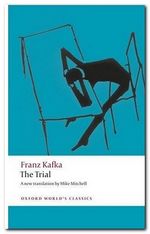
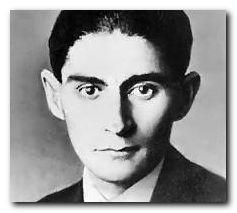
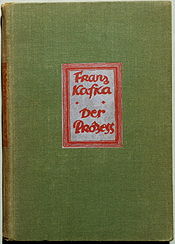 K is visited by his uncle, who is a friend of a lawyer. The uncle seems distressed by K’s predicament. At first sympathetic, he becomes concerned K is underestimating the seriousness of the case. The uncle introduces K to an advocate, who is attended by Leni, a nurse, who K’s uncle suspects is the advocate’s mistress. K. has a sexual encounter with Leni, whilst his uncle is talking with the Advocate and the Chief Clerk of the Court, much to his uncle’s anger, and to the detriment of his case.
K is visited by his uncle, who is a friend of a lawyer. The uncle seems distressed by K’s predicament. At first sympathetic, he becomes concerned K is underestimating the seriousness of the case. The uncle introduces K to an advocate, who is attended by Leni, a nurse, who K’s uncle suspects is the advocate’s mistress. K. has a sexual encounter with Leni, whilst his uncle is talking with the Advocate and the Chief Clerk of the Court, much to his uncle’s anger, and to the detriment of his case.
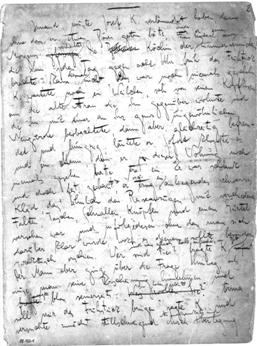
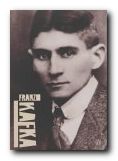 Franz Kafka: Illustrated Life This is a photographic biography that offers an intimate portrait in an attractive format. A lively text is accompanied by over 100 evocative images, many in colour and some previously unpublished. They depict the author’s world – family, friends, and artistic circle in old Prague – together with original book jackets, letters, and other ephemera. This is an excellent starting point for beginners which captures fin de siecle Europe beautifully.
Franz Kafka: Illustrated Life This is a photographic biography that offers an intimate portrait in an attractive format. A lively text is accompanied by over 100 evocative images, many in colour and some previously unpublished. They depict the author’s world – family, friends, and artistic circle in old Prague – together with original book jackets, letters, and other ephemera. This is an excellent starting point for beginners which captures fin de siecle Europe beautifully.
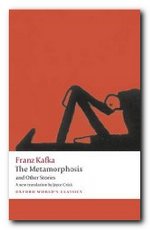 Metamorphosis
Metamorphosis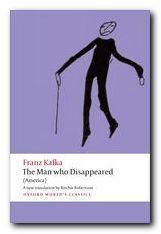 Amerika
Amerika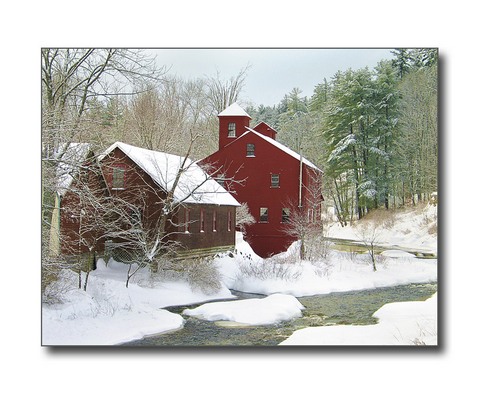
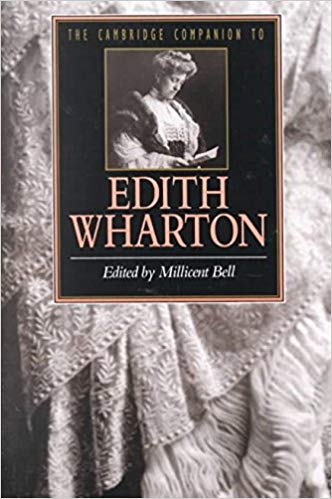
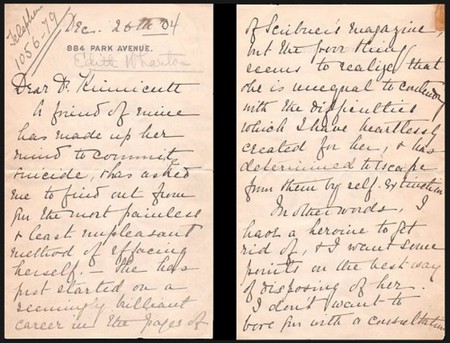
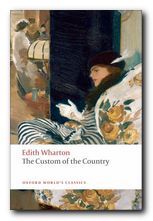 The Custom of the Country
The Custom of the Country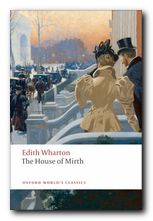 The House of Mirth
The House of Mirth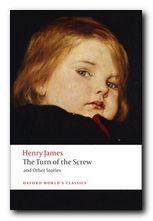

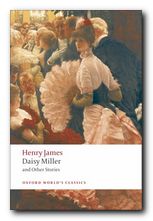 Daisy Miller
Daisy Miller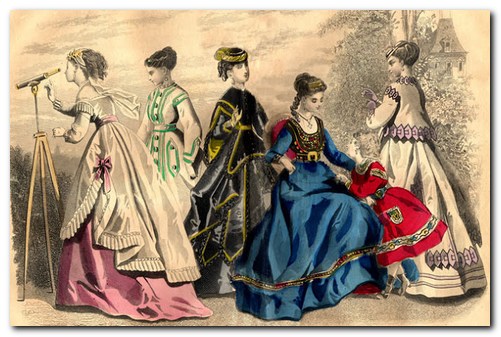
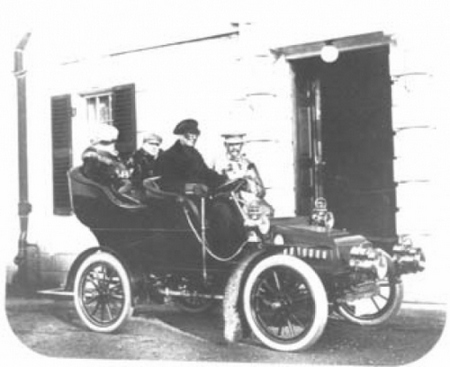
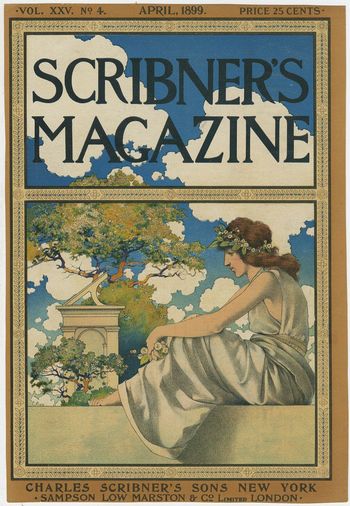
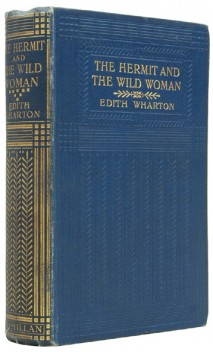

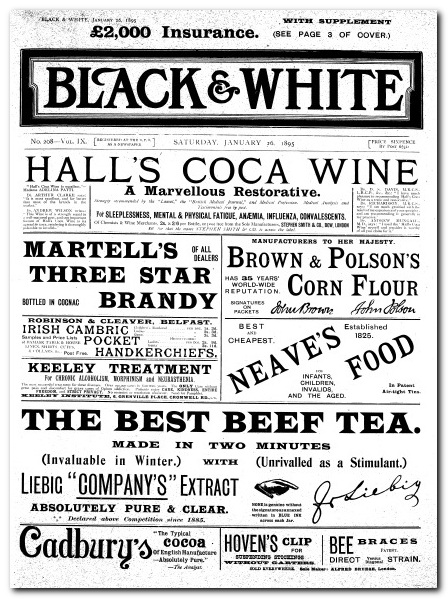
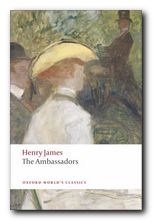 The Ambassadors (1903) Lambert Strether is sent from America to Paris to recall Chadwick Newsome, a young man who is reported to be compromising himself by an entanglement with a wicked woman. However, Strether’s mission fails when he is seduced by the social pleasures of the European capital, and he takes Newsome’s side. So a second ambassador is dispatched in the form of the more determined Sarah Pocock. She delivers an ultimatum which is resisted by the two young men, but then an accident reveals unpleasant truths to Strether, who is faced by a test of loyalty between old Europe and the new USA. This edition presents the latest scholarship on James and includes an introduction, notes, selected criticism, a text summary and a chronology of James’s life and times.
The Ambassadors (1903) Lambert Strether is sent from America to Paris to recall Chadwick Newsome, a young man who is reported to be compromising himself by an entanglement with a wicked woman. However, Strether’s mission fails when he is seduced by the social pleasures of the European capital, and he takes Newsome’s side. So a second ambassador is dispatched in the form of the more determined Sarah Pocock. She delivers an ultimatum which is resisted by the two young men, but then an accident reveals unpleasant truths to Strether, who is faced by a test of loyalty between old Europe and the new USA. This edition presents the latest scholarship on James and includes an introduction, notes, selected criticism, a text summary and a chronology of James’s life and times.